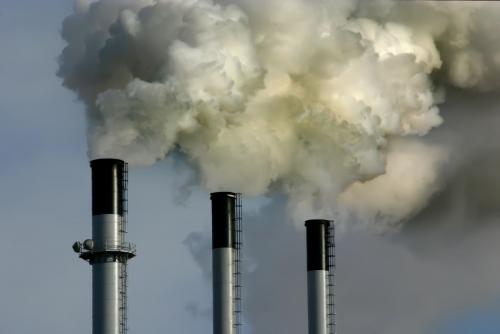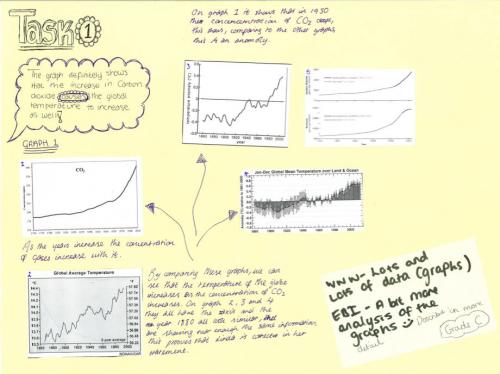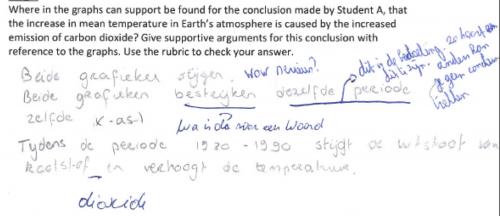The Global warming SAILS inquiry and assessment unit aims to enable students to consider scientific data and determine whether or not the evidence supports the phenomenon of global warming. An additional activity presents an opinion piece, which the students should critique to judge its scientific merit. This activity may be implemented at lower or upper second level depending on the curriculum’s objectives, and is proposed as a bounded inquiry.
The key skills that can be developed through these activities are forming coherent arguments, working collaboratively and scientific reasoning. Students also enrich their scientific literacy through the evaluation and use of scientific data/information. The assessment method emphasised is that of self-assessment, and rubrics are provided for students to use for evaluation of their own work.
The unit was trialled by teachers in Denmark, United Kingdom and Belgium, producing four case studies of classroom implementation. These four case studies describe the experiences of students at both lower and upper second level, aged 14-18 years. The participating classes consisted of both mixed and single gender (all-girls), and students were of mixed ability. The key skills assessed were forming coherent arguments, scientific reasoning and scientific literacy, with an emphasis on the analysis and interpretation of scientific data and distinguishing opinions from facts. The assessment methods used include self-assessment, peer-assessment, classroom dialogue and evaluation of student’s worksheets and other artefacts.
- Greenhouse effect
- Carbon cycle
- Global warming
- Lower
- Upper
- Forming coherent arguments
- Working collaboratively
- Scientific reasoning
- Scientific literacy
- Classroom dialogue
- Teacher observation
- Peer-assessment
- Self-assessment
- Worksheets
- Student devised materials
- Presentations
The activities in the Global warming SAILS inquiry and assessment unit were developed by the team at Malmö University as part of the SAILS project. In this unit, two activities are outlined. The first activity – “Greenhouse” – was developed by the OECD as a sample science task for PISA assessment (Take the Test – Sample questions from OECD's PISA assessments), and was adapted for the SAILS project. In this first activity (A: Interpreting the evidence), students are provided with graphs that show the emission of carbon dioxide to the atmosphere over a 135 year period, and the fluctuation in the average global temperature over the same time period. The students are first asked to support the proposed argument that “the increase in mean temperature in Earth’s atmosphere is caused by the increased emission of carbon dioxide,” and then are asked to argue against the same statement. This activity develops students’ skill in forming coherent arguments, while also increasing their scientific literacy by encouraging critical thinking. In the second activity (B: Forming scientific arguments), an opinion piece on the topic of global warming is provided and students are asked to produce a written response. They should use their knowledge about global warming, the carbon cycle and scientific methods, to address the arguments presented. Students should evaluate the opinion piece, and identify which arguments are based on facts and which are based on values and opinions. In this way they develop their scientific literacy, becoming better equipped to evaluate the opinions of others, and to become critical thinkers.
This unit is particularly suitable for assessing forming coherent arguments and scientific reasoning (argumentation, comparing), and developing students’ scientific literacy by encouraging students to evaluate scientific data and to make informed decisions. Students are able to work collaboratively and produce ideas based on views from team members.
Suggested assessment rubrics are provided for use as peer- or self-assessment tools for evaluation of forming coherent arguments and using scientific information (scientific literacy).
Below you can find the full inquiry and assessment unit for download, as well as an archive with classroom materials, including student worksheets and assessment tools for teachers to be used during the activities if available.
Unit booklet Classroom materials| Concept focus |
Greenhouse effect and global warming
Interpretation of scientific data to provide evidence to support or to disprove the idea of global warming
|
| Inquiry skills focus |
Forming coherent arguments
Working collaboratively
|
| Scientific reasoning |
Problem-solving
Making comparisons
|
| Scientific literacy |
Explain phenomena scientifically
|
| Assessment methods |
Classroom dialogue
Peer-assessment
Self-assessment
Student devised materials
Presentations
|
| Concept focus |
Greenhouse effect and global warming
Distinguishing opinion from facts
|
| Inquiry skills focus |
Forming coherent arguments
Working collaboratively
|
| Scientific reasoning |
Argumentation
|
| Scientific literacy |
Analysis and interpretation of scientific data
|
| Assessment methods |
Classroom dialogue
Peer-assessment
Self-assessment
Student devised materials
|
The Global warming SAILS inquiry and assessment unit was trialled in three countries, producing four case studies of its implementation – CS1 Denmark, CS2 United Kingdom, CS3 United Kingdom and CS4 Belgium. The case studies were implemented by teachers with some experience of teaching through inquiry, but the students had varied experience. Those in CS1 Denmark and CS2 United Kingdom had no prior experience in inquiry, while the students in CS3 United Kingdom and CS4 Belgium had some experience of inquiry in their classrooms. The unit was implemented in one or two lessons, up to 120 minutes duration.
The case studies describe classroom experiences at both lower and upper second level. CS3 United Kingdom and CS4 Belgium describe implementation at upper second level, although with two different age ranges, 14-15 years and 17-18 years, respectively. In CS1 Denmark and CS2 United Kingdom the unit was implemented with students from lower second level. Most implementations describe classes of mixed ability and gender, although in CS3 United Kingdom the class was “set 2 of 8,” a class of uniform ability formed as a result of standardised testing in the previous school year, and students in CS2 United Kingdom were all girls.
The key skills assessed in the case studies were forming coherent arguments and scientific reasoning (argumentation). In addition, some teachers also assessed students’ skill in working collaboratively and their scientific literacy, evidenced by their ability to analyse and interpret scientific data and distinguish opinions from facts. Self- and peer-assessment were also widely used for evaluation of skills, as well as classroom dialogue and student artefacts.
The Global warming SAILS unit was implemented in full (Activities A and B) in all case studies, although the manner in which it was implemented varied depending on students’ level and local curricula. The inquiry approach used in all the case studies is described as a bounded inquiry approach, i.e. it was guided in the sense that the teacher prompted engaging questions but there were open inquiry opportunities where students had freedom in addressing the questions. Implementation of the unit took place over one or two lessons. In general, the teachers did not significantly change the unit and trialled it as proposed.
Within the four case studies, the inquiry skills of forming coherent arguments and working collaboratively were assessed, as well as scientific reasoning (argumentation) and scientific literacy (analysis and interpretation of scientific data). The assessment methods used include self-assessment and peer-assessment, as outlined in the assessment of activities for inquiry teaching & learning section of this unit, as well as classroom dialogue, teacher observation and evaluation of student artefacts (worksheet, student devised materials or presentations).
Below you can find the full inquiry and assessment unit for download (excluding the case studies), as well as an archive containing all the case studies.
Unit booklet Case studies| Concept focus |
Global warming
|
| Activities implemented |
Interpreting the evidence
Forming scientific arguments
|
| Inquiry skills assessed |
Forming coherent arguments
Working collaboratively
|
| Scientific reasoning |
Argumentation
|
| Assessment methods |
Classroom dialogue
Self-assessment
Student devised materials
|
| Level |
Lower
|
| Age |
15-16
|
| Prior experience with inquiry |
No experience
|
| Concept focus |
Global warming
|
| Activities implemented |
Interpreting the evidence
Forming scientific arguments
|
| Inquiry skills assessed |
Forming coherent arguments
Working collaboratively
|
| Scientific reasoning |
Argumentation
|
| Scientific literacy |
Analysis and interpretation of scientific data
|
| Assessment methods |
Classroom dialogue
Teacher observation
Peer-assessment
Presentations
|
| Level |
Lower
|
| Age |
13-14
|
| Concept focus |
Global warming
Examining evidence that by its nature will be incomplete and conflicting
|
| Activities implemented |
Interpreting the evidence
Forming scientific arguments
|
| Inquiry skills assessed |
Forming coherent arguments
Working collaboratively
|
| Scientific reasoning |
Argumentation
|
| Scientific literacy |
Analysis and interpretation of scientific data
|
| Assessment methods |
Classroom dialogue
Teacher observation
Peer-assessment
|
| Level |
Upper
|
| Age |
14-15
|
| Prior experience with inquiry |
Very experienced
|
| Concept focus |
Global warming
|
| Activities implemented |
Interpreting the evidence
Forming scientific arguments
|
| Inquiry skills assessed |
Forming coherent arguments
Working collaboratively
|
| Scientific reasoning |
Argumentation
Making comparisons
|
| Scientific literacy |
Analysis and interpretation of scientific data
|
| Assessment methods |
Classroom dialogue
Peer-assessment
Self-assessment
Student devised materials
|
| Level |
Upper
|
| Age |
17-18
|
| Prior experience with inquiry |
Some experience
|




